mgazine
The voice of independent businesses in Australia




























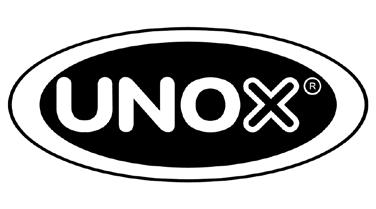


6 Thank you for your feedback on the Annual Wage Review
7 General Retail Industry Award Update
8 What is Wage Theft? 8 ANZAC Day Trading
9 Public Holiday Trading Hours Table 10 Complaints and Dismissals
11 NSW: Plastic packaging ban for food and beverage industries Environment & Sustainability
12 Tooheys commissions huge water recycling plant
13 Do sustainability practices and solar energy pay off?
14 Future-proofing supermarket refrigeration for sustainability & efficiency
15 IFPA ANZ Joins APCO to drive sustainable packaging in fresh produce industry
16 Introducing Social Impact Partner: Platform Zero
17 Consumer demand drives shift to eco-friendly packaging
18 Digital pricing transforming retail
19 Can fighting food waste actually boost profits? Industry News
20 Unpredictable weather - how to protect your business
22 Federal Government allocates $11 million to support small businesses in 2025
23 Celebrating a milestone: Fred Harrison’s 50 Years at Ritchies
24 Demand grows for convenience in the kitchen
25 SPAR Express opens new store in Blayney
26 Celebrating Lunar New Year and the Year of the Snake
26 VALE Roger Morgan Liquor News
28 Embracing Sustainability – what sets De Bortoli wines apart
29 Protecting luxury vineyards from the impacts of a changing climate
30 Plan for success. Why your Retail Lease needs a solid Business Pitch Timber News
31 Timber Circularity: Paving the way for sustainable construction
32 New changes to Australia’s Illegal Logging Laws
32 2025 IHG National Expo Events
34 Out and About: celebrating members





As we embark on 2025, I would like to extend a warm welcome to all members and supporters of MGA Independent Businesses Australia (MGAIBA). Your ongoing commitment and engagement with MGAIBA, the national peak body representing independent grocery, liquor, and timber and hardware stores across Australia, continue to strengthen our sector and ensure its viability in an ever-changing marketplace. On behalf of the Board, I sincerely thank you for your past and continued support, and we look forward to working closely with all member stores in the year ahead.
It is an immense honour and privilege to be appointed as President of the MGAIBA Board for 2025. In taking on this role, I acknowledge the contributions of both current and past Board members who have tirelessly dedicated their time and expertise to advocating for the interests of independent retailers. Since MGAIBA’s inception in 1898, the organisation and our member partners have achieved significant milestones in supporting, advocating, and representing the interest of our members, which remains our primary focus moving forward.
A special congratulations also to Terry Slaughter on his appointment as Vice President of the Board. I look forward to collaborating with Terry and the entire Board to ensure we uphold and strengthen the values and mission of MGAIBA.
A special thank you also to our outgoing President, Lincoln Wymer, for his dedication and contributions to MGAIBA during his tenure. Despite his demanding role as COO of the
Reddrop Group, Lincoln remains on the Board, and I appreciate his continued commitment to MGAIBA.
I also acknowledge the dedicated Support Team at MGAIBA, led by our CEO, David Inall. Our Employment Advisory and Member Engagement Teams work tirelessly to ensure that the MGAIBA continues to deliver strong advocacy, essential services, and valuable support to our members.
My passion for the independent retail sector is deeply rooted in my professional background, including my past 32 years working at Tasmanian Independent Retailers Co-Op Soc Ltd, with 17 of those years serving as CEO until August 2023. Throughout my career, I have remained committed to the success and growth of independent retailers, advocating for their needs and ensuring they have the tools and support necessary to thrive. My tenure on the MGAIBA Board since 2011, including my previous role as Vice President, has further reinforced my dedication to this industry and its members.
As we step into 2025, we must acknowledge the many challenges that independent retailers continue to face. Competition within the industry remains fierce, with the dominance of major chains posing significant hurdles for independent operators. Additionally, the escalating issues surrounding law and order have had profound impacts on businesses, their staff, and the wider community creating an urgent need for stronger protections and advocacy. The ongoing rise of illicit tobacco continues to be an urgent and pressing concern, not only affecting independent businesses but also

posing wider risks to communities across the country as the illegal market takes hold and legitimate businesses suffer. As a Board, we recognise the financial pressures and challenges many of our members face, and we remain steadfast in developing and advancing strategies to support and strengthen independent retailers in light of these confronting issues.
Beyond these immediate challenges, MGAIBA is unwavering in its commitment to addressing broader industry concerns, including employment and workplace relations, HR and training support, and key advocacy efforts that ensure our members have a voice at local, state and national levels.
In conclusion, I want to reaffirm my commitment, and that of the MGAIBA Board, to representing and promoting the interests of our members. Our mission is to ensure that independent grocery, liquor, and hardware businesses not only survive but thrive in today’s challenging retail landscape. With the ongoing support of our members, key stakeholders, and partners, I am confident that we will continue to drive positive change and strengthen the independent retail sector in Australia for the betterment of all member stores.
I look forward to working with you all and to a productive and successful year ahead. Thank you once again for your ongoing trust and support in MGAIBA.
Good Trading.

Grant Hinchcliffe President – MGAIBA Board
Each year, we seek member input to strengthen our submission to the Fair Work Commission (FWC) as it considers changes to the minimum wage. The FWC reviews a range of perspectives from experts, employers, employees, and industry representatives, including MGA Independent Businesses Australia. This year, we received an excellent response to our survey—surpassing last year’s participation. Your feedback plays a crucial role in ensuring we advocate effectively on behalf of members.

While the survey is now closed, if you missed your opportunity to voice your opinion, please contact us on 1800 888 479 or email admin@mgaiba. org.au. Your input is always valued.
We will be publishing our submission to the FWC and keeping members informed of our recommendations. Once the FWC announces its decision later in the year, we will update wage tables for members to access and provide further details on the review’s outcomes. Stay tuned for updates and thank you for your continued support.


The Fair Work Commission (FWC) has received several different applications over the past year from business groups, the Commonwealth Government, unions and individuals to change the General Retail Industry Award.
Those applications are at various stages of being considered or otherwise dealt with by the FWC.
We are monitoring these applications and have intervened where appropriate as an interested party to:
1. Support proposals which could simplify the award, reduce administration, remove ambiguity, reduce compliance costs and allow for greater business flexibility; and
2. Oppose proposals which could increase complexity, create extra administrative work, increase uncertainty, increase compliance costs and risks and otherwise make running a business more difficult.
These applications to vary the award are separate from the FWC’s consideration about setting minimum rates of pay, those matters are considered in the Annual Wage Review Process.
MGA Independent Businesses Australia is determined to ensure that as your voice representing the independent retailing sector, we are fighting for your interests in these matters. In addition to running our employment law and human resources advisory service for members, our experts devote hundreds of hours pushing back against proposals which could damage members’ businesses and continuously fight to ensure your interests are respected in important industrial relations decisions.









Wage theft refers to the intentional underpayment of employees’ wages.
This includes; not paying the correct amount for hours worked, not paying penalty rates, making unauthorised deductions, and failing to pay entitlements such as superannuation and leave.
The Fair Work Legislation Amendment (Closing Loopholes) Act 2023 introduced a criminal offence for intentional underpayment of employees’ wages, which commenced on 1 January 2025.
Under the new laws, individuals face fines up to $1.56 million (or three times the amount of the underpayment, whichever is greater) or ten years in prison, while corporations will risk penalties of up to $7.825 million (or three times the amount of the underpayment, whichever is greater).
To avoid underpayments, businesses should ensure they: have robust payroll systems, conduct regular audits, seek legal advice, and maintain accurate records of employee entitlements.
There are protections in place for businesses to avoid criminal prosecution. This includes the Voluntary Small Business Wage Compliance Code and cooperation agreements entered with Fair Work Ombudsman.
1. Understand your obligations: Ensure you are familiar with the industrial instrument which sets out minimum rates of pay. These rates can be found in the applicable award or enterprise agreement.

2. are up to date and comply with all relevant obligations.
3. Provide timely and correct payments: Regularly review employee entitlements and payments to avoid underpayment.
4. Act fast: If you become aware of an underpayment and continue to pay the incorrect amount (or no amount at all), this becomes an intentional underpayment and will likely be conduct which is captured by this criminal offence.
This article provides general information only and should not be considered legal advice. If you need assistance, contact our Employment Advisory team at 1800 888 479.
ANZAC Day is a solemn occasion for all Australians and is appropriately afforded special legal recognition.


In all states and territories across Australia, the 25th of April each year is designated as ANZAC Day and is a public holiday and public holiday laws regulate how employees should be paid. Please contact our Employment Advisory team if you are unsure how your employees should be paid for this day.




All states across Australia restrict trading on ANZAC day to varying degrees. Some states allow retailers of a particular size or those which sell particular items to remain open, some states restrict trading for the entire day, other states for part of the day.





If you are unsure if your store can trade on ANZAC Day, contact our Employment Advisory team on 1800 888 479 for assistance.








As we move through 2025, it’s important to stay informed about temporary changes to trading hours and employee entitlements on public holidays. To assist in planning for upcoming national holidays, we’ve provided a handy Public Holiday Trading Hours Table.
This resource outlines trading hours and potential restrictions across each State and Territory in Australia for holidays such as:
Easter: Friday, 18 April - Tuesday, 22 April 2025
ANZAC Day: Friday, 25 April 2025
The table also highlights when businesses may face trading hour restrictions and provides details on public holiday entitlements for employees, as per the relevant industrial instrument (e.g. modern award or enterprise agreement).
For your convenience, we suggest you print the table and keep it on hand for quick reference. Note: Trading hours may vary depending on geographic location and store size.
Support where you need it most
Click on the table below to download a printable version
*Trading hours may vary from geographic location and/or store size
Need help? Contact us
Helpful resources
If you have any questions or need advice specific to your business, please don’t hesitate to contact our Employment Advisory team at 1800 888 479 or submit an enquiry. 2025
For businesses with *Altered Trading Hours depending on specific circumstances, please refer to the below links to the relevant State/ Territory Agency, which can provide further guidance.
Australian Central Territory
Queensland
New South Wales
Northern Territory
South Australia
Tasmania Victoria Western Australia

The information provided is intended as general information only. Some businesses, such as liquor retailers, may be subject to additional licensing and trading restrictions beyond those outlined. This information is accurate as of the date of publishing but may be subject to change by State and Territory governments.
What
We recommend reviewing the public holiday trading hours and any restrictions specific to your business. If you anticipate any changes to your staffing or operations, please take the necessary steps to ensure compliance. Our team is available to assist with any queries. Need help? Contact us
If you have any questions or need advice specific to your business, please don’t hesitate to contact our Employment Advisory team at 1800 888 479 or submit an enquiry
Have any of your employees made a complaint or inquiry about matters connected to their employment? If so, seek advice and proceed very cautiously if you are considering dismissal of that employee.
Most retail employees in Australia can rely on a system known as ‘General Protections’ under the Fair Work Act 2009 (Cth) . One way that employees can use this system is to challenge a business’ decision to dismiss them from employment. In such claims, the employee alleges that their employment was terminated because they exercised a workplace right. One of many workplace rights that employees have is to make a complaint or inquiry about their employment.
The meaning of ‘complaint or inquiry’ is very broad. For example, it can be:
A question about their rate of pay
A report about a safety concern
Concerns about how a customer has treated them
Many other employment-related issues
Legal Consequences of Dismissing an Employee for Making a Complaint or Inquiry
It is unlawful for an employer to take ‘adverse action’ (such as dismissing them from employment) because an employee has made a complaint connected to their employment.
Unlike with unfair dismissal cases, there is no minimum waiting period before the employee can start this type


of legal proceeding. Although, the employee must make such an application within 21 days of their employment ending.
Unlike in most legal proceedings, the employee does not need to prove the claim. The employee’s allegation that they were dismissed because of a prohibited reason in a General Protections case is presumed to be true and it is necessary for the employer to then disprove the allegations through a successful defense.
The Court has broad discretion in determining a suitable outcome if the employer loses the case. This may include:
Reinstating the employee in their former position
Ordering compensation
Ordering penalties (which can be as high as $99,000 per contravention)
General Protections are a complex area of employment law and MGAIBA’s employment lawyers are highly experienced in this area and regularly represent members dealing with these types of matters. If you are considering dismissing an employee who has made a complaint or inquiry, seek advice from us first.
This article provides general information only and should not be considered legal advice. If you need assistance, contact our Employment Advisory team at 1800 888 479.

As of January 1, 2025, New South Wales has implemented a ban on single-use plastics in food and beverage packaging. This includes plastics like straws, spoons, and cups that are sealed or attached to packaging. The goal is to reduce plastic waste, with the ban even covering biodegradable and bioplastics.
Review and Update Your Stock: Assess your current inventory to identify any products that contain banned plastics. Work with suppliers to clear existing stock or replace products that will no longer be compliant. Source Sustainable Alternatives: Start sourcing alternative packaging materials that align with the new regulations. Look for eco-friendly options like paper, glass, or plant-based plastics that are not affected by the ban.
Communicate with Customers: Inform your customers about the changes, especially if they will see any product or packaging alterations. Transparency can
help manage expectations and boost your sustainability credentials.
Plan for Transition: Make sure to transition quickly to avoid stock disruptions. Begin adjusting your product offerings now to stay ahead of the deadline and remain compliant.
The plastic packaging ban is now in effect, and independent retailers who haven’t started preparing are encouraged to act quickly to stay compliant and maintain smooth operations.
Examples of integrated packaging that are banned effective 1 January 2025:



For more details, refer to the EPA NSW website. Each state and territory is working towards reducing plastic waste in different ways, so it’s important for businesses and individuals to stay updated on the specific rules for their region. For example, South Australia and the Australian Capital Territory have similar plastic bans, but they might differ in terms of products banned or timelines. Always check with local authorities for the latest guidance! Source: EPA NSW
Lion has officially commissioned a Reverse Osmosis Water Recycling Plant at its Tooheys Brewery in Lidcombe, which will deliver water savings per year equivalent to 5.3 million kegs, or 108 Olympic sized swimming pools.
The three-year, $7.2m project will save an estimated 270 million litres of water each year, with the recycled water, which is very high quality, to be used for nonfood surface cleaning and cooling purposes within the brewery – not in the beer.
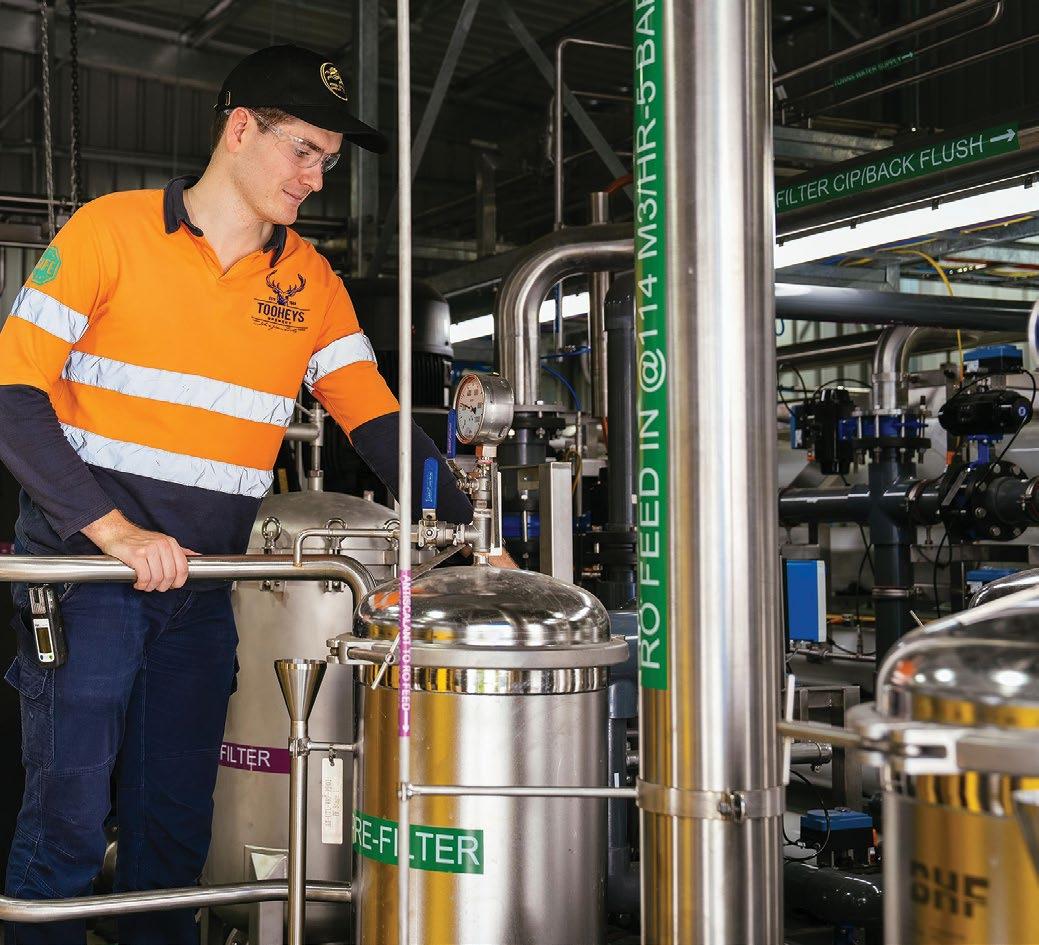
Lion Group CEO, Sam Fischer, said: “While Lion is proud of our position as Australasia’s first large-scale carbon neutral brewer, we are constantly looking at what more we can do to reduce our impact on the environment and do the right thing for the long term.
“Water is one of the biggest inputs to brewing beer and following the success of the Reverse Osmosis Water Recycling Plant at our XXXX brewery in Brisbane, we thought it is only fair to create one for Tooheys drinkers.
“We have an ongoing commitment to sustainability and are focused on investing in practical measures that reduce water consumption, help decarbonise the brewing process and drive the circular economy to reduce waste.”
Sydney Water’s Head of Customer Contact, Dan Peacock added: “By implementing a unique way to recycle water, it allows Tooheys to save 270 million litres
per year of water, and significantly reduces their water bill by approximately $700,000+ annually.

“Non-residential customers, like Toohey’s, use about 22 per cent of all drinking water in Sydney. So, this project is a pivotal, sustainable step forward, demonstrating how much water can be saved through a committed water conservation program. By embracing practices like recycling water, they are demonstrating how largescale businesses can make a substantial difference in reducing water waste and protecting our resources.
“This partnership is just one example of how businesses can work with Sydney Water to meet environmental goals and conserve water. Every drop of water is precious, especially as we face ongoing challenges in water resilience, so we are really pleased to have supported this innovative project.”
The Tooheys Lidcombe Reverse Osmosis Water Recycling Plant is the second from Tooheys owner, Lion, which commissioned the Reverse Osmosis Water Recycling Plant at its XXXX Brewery in Brisbane in 2009, which has resulted in an average of 282 million litres of water saved per year.
Source: Andy Young. The Shout

For many SMEs (small to medium enterprises), sustainability and climate action can seem daunting. The risk of going overboard or investing in strategies that don’t pay off is a valid concern. However, SMEs can reap substantial benefits from adopting ‘practical sustainability’ measures. Here’s why:
1. Customers Expect It
A survey by Monash Business School’s Australian Consumer and Retail Studies found that 46% of consumers consider sustainability a key factor in their purchasing decisions. Additionally, around half of shoppers are willing to pay more for products and brands that align with their values.
2. Strong Financial Returns
Investing in energy efficiency and solar energy systems can deliver a return on investment (ROI) of 20% or more per year, outperforming many traditional investments.
3. Protection Against Energy Price Volatility
Protect your bottom line. Adopting sustainable practices can help safeguard your business against the unpredictable fluctuations in energy prices.
4. Meeting New Reporting Mandates
ASIC’s new climate reporting requirements for large corporations are pushing sustainability down supply chains. SMEs will need to adapt to stay competitive.
Small but impactful upgrades—like switching to LED lighting, sealing air leaks, and improving insulation—can improve energy efficiency. However, one of the most visible and effective steps is adopting solar energy. Not only will solar panels boost your sustainability credentials, but they can even be visible on Google Maps when customers search for your business. Consider installing a solar generation display in-store to showcase your sustainability commitment.
Absolutely. Here’s why investing in solar makes financial sense:

Solar panels typically pay for themselves in around five years or less and can last for 25+ years.
Attractive government incentives are still available.
Businesses can offset up to 40% or more of their electricity use.
Solar-as-a-Service options allow you to install solar with $0 capital outlay.
A newly built IGA store in Geelong installed solar from day one. In less than a year (March 2024 - February 2025), the system has delivered:
106.4 MWh of clean energy
Over $16,700 in estimated savings in just over 10 months
105.57 tonnes of CO2 reduction
The store owner is already reaping the rewards of this sustainable investment!
Our engineers will provide a complimentary solar guide or a free assessment (worth $980).
Contact Kazi at 0401 877 544 or email brian@freeengineer.com.au
Free Engineer (solarpedia.com.au) specialises in commercial solar and battery solutions, operating nationally to help businesses achieve practical, profitable sustainability.
Supermarkets increasingly need to reduce energy consumption and upgrade to more sustainable refrigeration solutions. With the phase-down of high-Global Warming Potential (GWP) refrigerants like R404A accelerating in Australia, planning is crucial to avoid rising costs, compliance issues and inefficiencies.
The challenge.
The phase-down of R404A refrigerant is accelerating in Australia as part of the Australian government’s commitment to global efforts to reduce greenhouse gas emissions. This presents both challenges and opportunities for supermarket operators.
Many refrigeration systems currently in use are energyintensive, resulting in high operational costs. Businesses that do not have a proactive transition plan may face unexpected upgrade costs, compliance risks and disruptions to their operations.
Key solutions for a more sustainable store future-proofing refrigeration systems.
A well-planned transition from R404A will keep stores within the regulations’ ambit while continuing to achieve their goals of efficiency. An assessment of current refrigeration units and a planned approach for upgrading in phases will ensure that the transition is smooth. Energy-efficient refrigerants.
Upgrade to highperformance display cabinets.

Energy-efficient refrigeration display cabinets boast high-performance heat transfer evaporating coils, low U (greater insulation to heat flow), low-watt EC fan motors, LED lighting and advanced temperature controls that can substantially reduce energy use.
Changing out open cases for closed-door models can also pay for itself in significant energy savings.
Smart monitoring & maintenance strategies.
Smart monitoring systems optimise energy use by identifying inefficiencies in the operation of refrigeration units. Remote monitoring and predictive maintenance strategies avoid breakdowns and help reduce wasted energy.
Take Action.
For supermarkets, it’s a matter of keeping pace with the changes within the industry. Proactively evaluating current in-store refrigeration systems for opportunities to upgrade and integrate smarter energy management can help achieve your sustainability objectives without sacrificing refrigeration performance.
For those businesses seeking customised solutions, industry experts will be able to advise on how to navigate


IFPA ANZ joins APCO to drive sustainable packaging
The International Fresh Produce Association Australia and New Zealand (IFPA ANZ) has become a signatory to the Australian Packaging Covenant Organisation (APCO), underlining its commitment to supporting the fresh produce industry journey to more sustainable packaging practices.
IFPA outgoing managing director ANZ Ben Hoodless said packaging was among the hot topics facing the fresh produce and floral industry, especially around the future of Price Look-Up code (PLU) produce stickers and returnable packaging.
Under its industry association membership, IFPA ANZ is entitled to be part of APCO’s problem-solving collective, working in collaboration with local and global sustainability leaders in government, industry, community groups and academia and joining the movement as it transitions to the National Packaging Targets.
The targets include: 100 per cent of packaging to be reusable, recyclable or compostable; 70 per cent of plastic packaging to be recycled or composted; 50 per cent average recycled content across all packaging; and a phase-out of problematic and unnecessary single-use plastic packaging.
“As an industry, we are failing APCO’s targets – the systems, schemes and infrastructure are not there to support supply chain member efforts. A more realistic target is 2030. We need to see more investment from governments into establishing recycling infrastructure if we are to achieve any real traction in this space by 2030,” Mr Hoodless said.
Cadbury Australia is accelerating its efforts to reduce plastic waste by incorporating recycled plastic into its packaging. In a new initiative, the chocolatier plans to use 50% recycled plastic for the wrappers of its chocolate blocks, bars, and pieces produced locally. This move follows the company’s partnership with Amcor, which will

“In Australia to date, packaging regulations have largely been statebased which can cause significant issues for growers and packers who supply across borders (where different regulations apply). APCO works closely with the Federal Government to make members’ voices heard at a national level. IFPA ANZ supports a national approach which aims to reduce complexity, inefficiency and cost to the supply chain.”

IFPA ANZ plans to conduct targeted webinars to guide members through the transition to sustainable packaging. For more information, visit IFPA ANZ’s website.
supply the recycled materials, as part of Cadbury’s larger goal to cut down on virgin plastic usage.
This development comes soon after Cadbury’s parent company, Mondelez International, partnered with Amcor to invest in Licella to build one of Australia’s first advanced soft plastic recycling facilities. The new facility, set to open next year, will initially process around 20,000 tonnes of plastic annually, with plans to scale up to 120,000 tonnes per annum.
The use of recycled plastic is already underway with Cadbury’s Dairy Milk family blocks, which in 2022 saw 30% of their plastic sourced from recycled materials. This year, the new wrappers will also cover iconic products like Cherry Ripe, Crunchie, Twirl, and Roses, offering a sustainable choice for retailers and consumers alike.
For independent retailers, this move represents an opportunity to align with a global brand committed to sustainability while offering customers a more ecoconscious product option.
For over 70 years, Platform Zero has been a trusted supplier in the Australian fresh produce industry, known for delivering fresh, high-quality products at a fraction of the price. By sourcing directly from farmers, the company eliminates middlemen, offering A-grade produce at significantly lower costs without compromising quality.
Understanding the financial pressures on businesses, Platform Zero offers extended payment terms of up to 55 days per invoice. This flexibility helps businesses manage cash flow while accessing high-quality, sustainable produce. Additionally, customers can earn frequent flyer points on every purchase, further enhancing the value of partnering with Platform Zero.
Platform Zero challenges the typical pricing model in the fresh produce industry by offering excess high-quality, fresh products at a quarter of the typical market price. This allows businesses to access premium produce at a much lower cost, enabling better margins without sacrificing quality.
Platform Zero also offers companies full inventory of a product list. From frozen, processed, seconds and premium.
Platform Zero is not just about saving money—it’s about making a positive environmental impact. The company
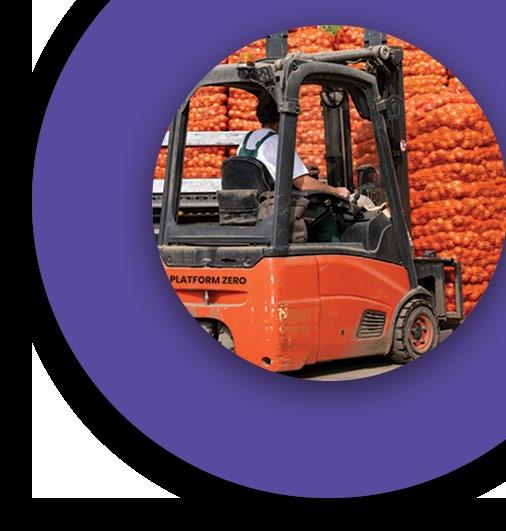
provides detailed sustainability reports with every purchase, offering full transparency from farm to plate. These reports outline the environmental impact of each product and help businesses track their sustainability progress. By leveraging this data:
- Companies can make informed purchasing decisions that directly contribute to their Environmental, Social, and Governance (ESG) goals.
- With sustainability reporting, businesses can more easily achieve their green targets and track progress toward more sustainable operations.
Platform Zero offers fresh produce that meets the highest quality standards. Certified with SQF and other accreditations. What sets it apart is its ability to offer A-grade produce at significantly lower prices than traditional suppliers. This approach allows businesses to access high-quality products without compromising on cost.
Platform Zero offers a compelling value proposition: discounted, high-quality fresh produce combined with robust sustainability reporting to help businesses meet ESG targets and unlock financial benefits. By choosing Platform Zero, businesses not only save money but also contribute to a greener, more sustainable future.

As
sustainability becomes increasingly important to Australian consumers, small and medium-sized enterprises (SMEs) are being urged to take action on the environmental impact of their packaging. The move to eco-friendly alternatives is not only a consumer demand but also a response to regulatory and market pressures.
Why sustainable packaging matters for SMEs
1. Environmental Impact of Packaging:
Packaging waste, particularly from singleuse plastics, is a significant issue in Australia, contributing to nearly 3 million tonnes of waste annually. This has pushed businesses to rethink packaging choices.
2. Rising Demand for Sustainable Packaging: Experts stress the importance of adopting biodegradable, recyclable, and sustainable materials. The growing consumer preference for eco-conscious brands means businesses that lag in adapting may fall behind in the market.
3. Consumer Behaviour Shift:
Research from Nielsen reveals that 66% of global consumers are willing to pay more for environmentally conscious brands, making the transition to sustainable packaging a strategic business decision.
4. Challenges of Transitioning:
Despite the benefits, transitioning to eco-friendly packaging can be costly and supply chains for sustainable materials are still developing. However, businesses that have made the switch are seeing positive outcomes, including improved customer loyalty and reduced shipping and production costs.
5. Government Policies Driving Change: The Australian Government’s 2023 packaging reforms, which aim to reduce plastic waste by 80% by 2030, are adding additional pressure for businesses to adopt sustainable practices.

Source: Small Business Connections
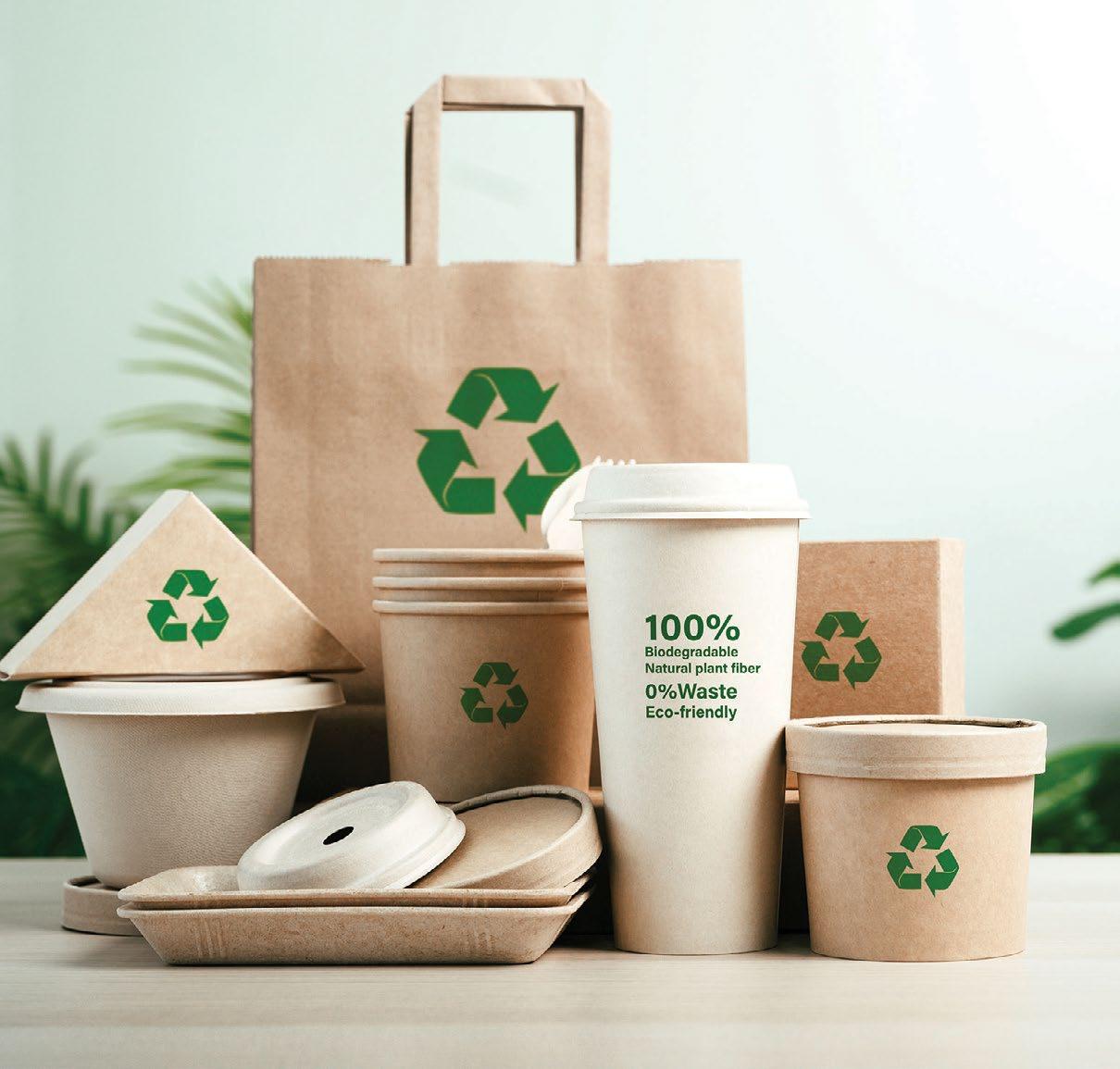
6. Opportunity Amidst Challenges:
Although the transition to sustainable packaging presents challenges, it also offers an opportunity for SMEs to align with consumer preferences, reduce environmental impact, and remain competitive in an increasingly eco-conscious marketplace. stress management, selfawareness, effective communication skills and resilience.
As environmental concerns grow, the traditional use of paper tickets for pricing in grocery stores is becoming increasingly problematic. Retailers are now realising the financial and environmental costs of managing paper, with thousands of A4 sheets being used and often ending up in landfills. In response, many Australian retailers are adopting Electronic Shelf Labels (ESLs) to reduce paper waste and improve efficiency.
ESL systems provide numerous benefits, such as reducing paper waste, ensuring accurate price updates, and eliminating issues with paper tickets falling off shelves. A reliable ESL solution can last for a decade, offering a significant return on investment.
Supermarkets embrace digital pricing
Retailers across Australia are leveraging ESL technology to reduce manual labour and respond quickly to pricing changes. Independent supermarket owners are finding ESLs especially valuable for combatting staff shortages and freeing up time previously spent updating up to 15,000 individual price tags in each store.
FoodWorks, part of the Australian United Retailers network, is already leading the digital pricing charge, with multiple stores—Normanton, Estella, and Yackandandah—having installed ESLs.

Robert Markezic, national operations manager for Australian United Retailers, highlights the advantages of digital pricing, including creating new opportunities for staff and enabling dynamic pricing strategies. “The ease and speed of electronic tickets has allowed stores to pursue more dynamic pricing strategies that can quickly respond to market and customer demands,” he said.
According to Louis George of OZESL, ESLs help retailers by:
Redeploying labour from time-consuming tasks to customer service and shelf stocking.
Reducing printing costs and waste associated with paper labels.
Maintaining pricing integrity, ensuring accuracy across point-of-sale systems and in-store labels.
Retailers are responding to the labour shortage by using ESLs to streamline operations. Instead of spending days changing paper labels, stores can now implement up to 5,000 price changes in 10 minutes, allowing them to quickly adapt to promotions, inventory shifts, and price adjustments.
For more information on how ESL systems can transform your store, contact sales@ozesl.com.au or visit ozesl. com.au
Pricer are a Swedish company who have been producing a reliable ESL solution for in excess of 30 years. In that time many competitors have come and gone however Pricer still remain a strong market leader within the ESL space, innovating new and improved solutions for the benefit of retailers.
OZESL/NZESL have been proud partners with Pricer for 15 years now and with ESL’s as our main business we are always assessing the market wanting to provide the best solution to our customers. ESL’s are our business and we sleep well at night knowing that our customers are using the Pricer system.
For grocery retailers, sustainability efforts often seem like a balancing act—how do you do the right thing without cutting into margins? The answer: strategic food waste prevention. Instead of seeing waste reduction as an expense, leading grocers are using smart technology to turn potential losses into profits. Why cutting food waste is a smart business move
1. Shoppers Pay Attention – Sustainability isn’t just a buzzword. Studies show that 63% of consumers prefer retailers with strong sustainability initiatives, and reducing food waste is one of the most visible ways to demonstrate that commitment.
2. Real Financial Gains – Implementing Expiration Date Management and Markdown Optimisation can generate up to 20% more revenue from atrisk items—keeping products out of the trash and putting dollars back into your bottom line.
3. Stay Ahead of Regulations – With mandatory waste reporting on the rise, retailers that act now will be in a stronger position when new compliance requirements hit.
4. Lean, Efficient Operations – Smarter waste management streamlines store processes, reducing labour hours spent on date checks by 50-80% while keeping shelves fresher.
Expiration Date Management – Ditch the manual checks. With real-time tracking, store teams focus only on products that need attention, saving time and reducing shrink.
Dynamic Markdown Optimisation – Instead of flat, last-minute discounts, AI-powered markdowns ensure the right discount at the right time, driving more sales and reducing waste.
Seamless Donation Management – Keep unsold but edible food out of landfills while staying compliant and supporting your community.
Is it worth the investment?
Waste reduction solutions offer a short payback period, often covering their costs within months. Increased sellthrough rates and reduced labour hours make these
investments highly profitable.
The financial benefits are clear. ICA Kvantum Sannegården, for example, reduced food waste by 40% and increased profitability by 1% simply by optimising markdowns.

Beyond cost savings, food waste prevention also strengthens customer loyalty. Stores that make their sustainability efforts visible—whether through markdown labeling, donation tracking, or in-store promotions—see increased foot traffic and stronger engagement from eco-conscious shoppers.
We are currently gathering results from several Australian retailers such as The Reddrop Group, Retail Management Group, The Happy Apple Group and many more independents who are making significant savings in waste reduction with the system.
To provide further context, here are some success stories from overseas:
One Stop (UK) - 14.3% food waste reduction and a 50% faster date-checking process.
Meny Værløse (Denmark) - 37% waste reduction and a better in-store experience with clear markdown labeling.
Foodora Market (Dark Stores EU) - Improved inventory tracking and waste reduction in fastpaced dark store environments.
Get a complimentary Waste 360 strategy session to see how your store can cut waste, increase profitability, and stay ahead of industry trends. Contact us at sales@ozesl.com.au or visit ozesl.com.au to learn more.
Upshop (previously Whywaste) helps retailers waste less and earn more, with smarter markdowns, easier expiration tracking, and seamless donation management.




Australia’s climate is becoming increasingly unpredictable, with extreme weather events such as storms, floods, and high winds posing significant challenges for businesses. As independent grocers and retailers, it’s essential to take proactive measures to protect your operations, staff, and customers from potential disruptions.
As proud insurance partners of the MGA Independent Businesses Australia, Adroit Insurance & Risk and Austbrokers Countrywide Insurance Brokers are well versed in the devastating effects that severe weather events can have on any business and want to reassure all MGAIBA members that we are here to offer guidance and support.


Here are some proactive risk management tips below to help your business: Develop a comprehensive emergency plan: Outline clear protocols for different types of storms or extreme weather. Assign roles and responsibilities to staff, establish reliable communication channels, and ensure everyone is familiar with the plan. Regularly review and update it as necessary. Protect valuable assets: Secure equipment, machinery, and inventory by anchoring or relocating them to prevent damage from high winds or flooding.
Back up important data: Regularly store critical business files and data in off-site or cloud-based storage to safeguard against loss from power outages or equipment damage. Consider automated backup systems to ensure continuous protection. Invest in a backup power generator: Keep critical systems operational during power outages by installing a backup generator. Ensure it is regularly serviced and that employees are trained on its use. This can help prevent the loss of perishable stock.
Conduct staff training on storm preparedness: Hold regular training sessions or workshops to educate employees on storm preparedness and response protocols. Provide guidance on what actions to take, including evacuation procedures, safety measures, and reporting channels.
Stay informed with real-time weather updates: Sign up for emergency alerts or use weather apps to receive timely warnings.
Establish a process for monitoring weather conditions and ensure your team is aware of any necessary actions.
Maintain your property and clear gutters: Regularly inspect and maintain your building, including the roof, windows, and drainage systems. Keep gutters and downpipes clear of debris to prevent water buildup and reduce the risk of flooding or structural damage during heavy rainfall.
BOTH ADROIT INSURANCE AND RISK AND AUSTBROKERS COUNTRYWIDE INSURANCE BROKERS ARE COMMITTED TO SUPPORTING INDEPENDENT GROCERS AND RETAILERS.

Review Insurance Coverage: Ensure your insurance policy is up to date and covers extreme weather-related damages, including flooding, business interruption, and stock loss.
TALK TO DANIEL GILBERT, PARTNERSHIP MANAGER, WHO WILL CONNECT YOU WITH AN ADROIT OR AUSTBROKERS COUNTRYWIDE ADVISER (DEPENDING ON YOUR LOCATION) TO DISCUSS YOUR INSURANCE NEEDS OR RISK STRATEGIES: CALL: 0467 690 450 EMAIL: DANIELG@ADROIT.COM.AU
be
In response to the challenges faced by businesses, the Federal Government has committed almost $11 million to assist small business owners throughout 2025.
Targeted Financial and Mental
coaching for small business owners. Participants can access up to six structured sessions with a coach who has both mental health training and experience in small business. The program is designed to address the unique challenges faced by small business owners, and no GP referral

Government’s Commitment to Small Businesses
Minister for Small Business Julie Collins emphasised the critical role of small businesses in Australia’s economy, stating, “Small businesses









In February, Ritchies celebrated an extraordinary achievement— Fred Harrison, CEO, Director, and shareholder, marks 50 years with the company!
Fred’s journey began in the early 1970s when he started as a trolley boy after selling fresh produce from his family garden. Over the decades, Fred has worked his way through every level of the business, helping shape Ritchies into the retail powerhouse it is today. His passion for retail, leadership, and commitment to community have been central to Ritchies’ growth—transforming it into a $1.4 billion business with over 80 supermarkets and liquor stores and employing more than 6,500 people.
Fred’s impact extends far beyond business success. Under his leadership, Ritchies has donated more than $54 million to local clubs, schools, and charities, reinforcing the company’s core values of community, loyalty, and continuous improvement.
Mal Cameron, Director at Ritchies, summed it up perfectly:
Fred’s 50-year journey epitomis es Ritchies’ core values of community, loyalty, and continuous improvement. His passion and commitment have shaped both our company’s success and its role in supporting local initiatives. We couldn’t be prouder to celebrate this milestone with him.

Wayne Harrison, Victorian State Manager and Director (and Fred’s son), added:
Dad has been at Ritchies my whole life, and the majority of his. His passion for independent retail is unwavering, and his vision has been pivotal in ensuring Australian customers always have a strong alternative to the chains.
Reflecting on his 50 years, Fred shared:
I’ve always felt at home at Ritchies. My greatest pride is seeing how we’ve grown while keeping that strong community focus that sets us apart.
Fred, congratulations on this remarkable milestone - five decades of dedication, leadership, and community impact. Your legacy is a true inspiration.


The demand for homestyle, ready-to-go meals is skyrocketing across Australia, as busy lifestyles push consumers to seek out quick and convenient food options.
FoodWorks in East Corrimal and stores in Mansfield and Bacchus Marsh, are tapping into this trend by offering pre-prepared meals and fresh lunch options, reshaping the way communities approach mealtime.
“Australians are looking to reduce how long is being spent shopping and cooking each week, reprioritising recreation and family time,” said Robert Markezic,


National Operations Manager at Australian United Retailers.
“A reimagined store offering can deliver customers what they really want – food that is quick and easy to prepare.”
This shift is transforming the way stores engage with their local communities. For example, FoodWorks East Corrimal (north of Wollongong) saw its lunchtime trade more than double after revamping its deli offerings, now drawing steady foot traffic throughout the day.
This adaptability is allowing stores to provide fresh, healthy meal solutions, like sushi bars and in-house delis, that make putting a meal on the table as effortless as possible.

With the rise of convenience food, independent supermarkets are proving that innovation, community connection, and tailored offerings are key to success in the ever-evolving retail landscape.
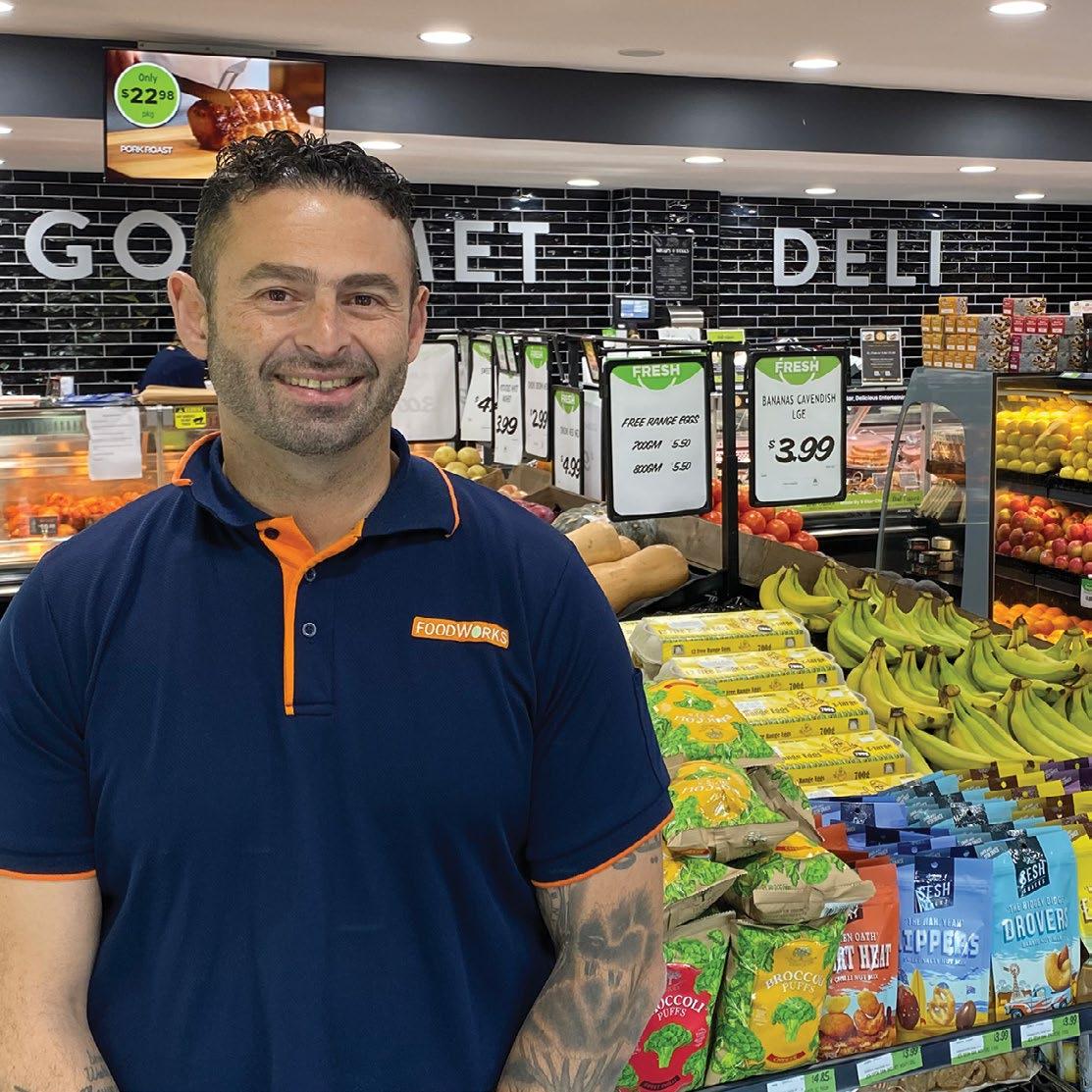
SPAR Australia is excited to announce the opening of its newest SPAR Express store in Blayney, NSW, marking a significant step in the brand’s commitment to serving local communities. The store officially opened in December 2024, with a ribbon-cutting ceremony attended by local MP Bruce Reynolds, Deputy MP Rebecca Scott, and SPAR Australia Managing Director Lou Jardin.
Owned by Gurinder Singh Gosal, a longtime Bathurst resident, the new store embodies the ‘live local, shop local’ philosophy. With a passion for retail and community involvement, Gurinder has been eager to offer Blayney a fresh, convenient shopping experience. “Our goal is to provide top-tier service with a personal touch,” he said.
SPAR Express Blayney features a wide selection of groceries, dairy, and frozen foods, all offered at competitive prices. The store’s extended hours cater to busy lifestyles, and it promises to become a go-to destination for locals.

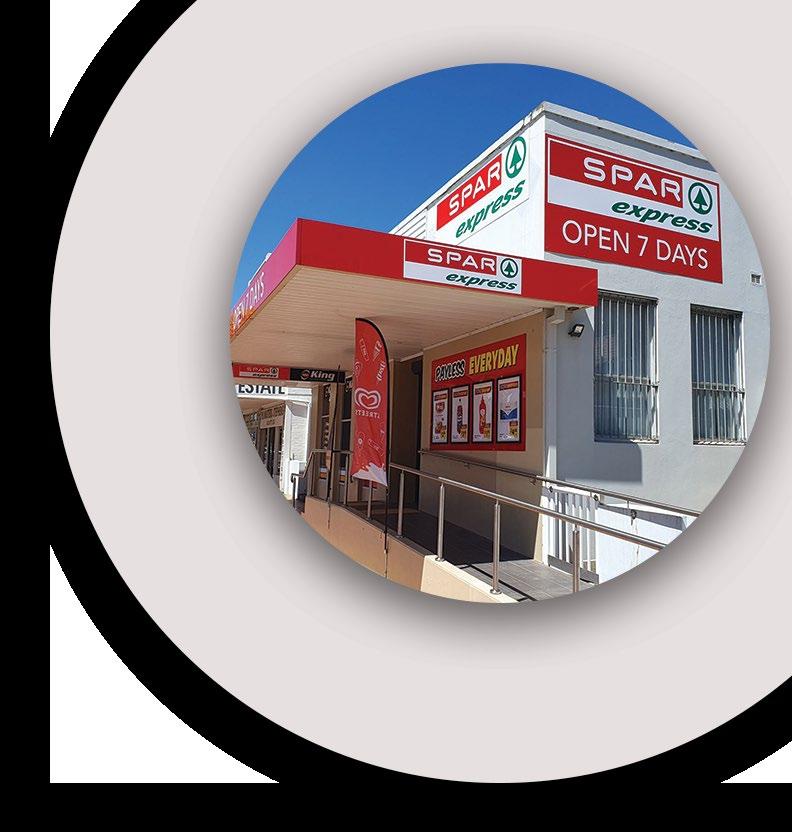
Gurinder and his team (photo bottom left) are dedicated to supporting the local community, with plans to sponsor sports teams, donate to food banks, and host charity events. SPAR Express Blayney is open daily at 105 Adelaide Street, ready to serve the Central West region.


Happy Chinese New Year to all our members celebrating the Year of the Snake!
We are delighted to shine a spotlight on how local businesses celebrated the Lunar New Year, embracing this meaningful tradition, in sharing the festivities with their families, friends, and teams.

One such example is Baggio Wang , the proud store owner of Flagstaff Hill Foodland, who has been celebrating Chinese New Year with his loved ones for many years. While his celebrations are a blend of both traditional and Aussiestyle elements, the essence of family, togetherness, and gratitude remains at the heart of it all.

“We decorate the house simply with hanging Chinese characters, Chinese statues, red stickers, and lanterns,” Baggio shares. “We don’t celebrate super traditionally, it’s more Aussiestyle with a barbeque, or even a lamb on the spit, and everyone brings a dish. Over the last few years myself and the Flagstaff Hill Foodland team have celebrated together, with our Butcher, Fruit and Veg Manager, Bakery Manager and Store Manager getting together to celebrate.”
For Baggio, celebrating Chinese New Year is about more than just enjoying delicious food. It’s a time to reflect on the past year and look forward to the new beginnings that come with the Lunar New Year. As we step into the Year of the Snake, the focus is on growth, transformation, and wisdom – values that resonate deeply with Baggio and the Flagstaff Hill Foodland team.
To all our members celebrating, Happy Chinese New Year! May the year ahead bring new opportunities, good health, and great success. Read more on the latest news at Foodland here>>
Roger Morgan was a formidable stalwart of the Australian independent grocery industry, particularly during the 70s, 80s, and 90s. As a pioneer, he played an integral role in shaping the sector alongside industry giants like Leo Ryan. He was an active contributor to various committees for many years, where his influence was felt across the industry.
Roger was also a key figure in Morgan’s IGA Supermarkets, a family-owned business established in 1971 by Jack and Audrey Morgan. Under his leadership, the business grew significantly, expanding to include stores in Melton, Sunbury, Gisborne, Delahey, and West Sunshine. Morgan’s IGA became well-known for its commitment to customer service, and Roger introduced the “Extra Shopping Power” program, further enhancing customer loyalty and engagement.
In addition to his contributions to the retail business, Roger was deeply involved in industry organisations, including the Master Grocers Association of Victoria and IGA Supermarkets’ Victorian State Board. His work on these boards helped shape policies and drive initiatives
that would benefit independent retailers across the country.
Roger’s legacy is one of dedication, leadership, and innovation. His contributions to the grocery sector continue to resonate, and his influence will not be forgotten. He leaves behind a lasting impact on the industry, the people he worked with, and the communities his supermarkets served.
Our deepest condolences go out to Roger’s family. May they find comfort in knowing that his contributions to the industry and his leadership will always be remembered and honoured.



What sets De Bortoli Wines apart
Established in 1928, De Bortoli Wines has grown to become one of Australia’s most esteemed family wine companies, renowned equally for its classic icon wines as it is for its new wine innovations.
Managing Director and third-generation family member Darren De Bortoli reflects on De Bortoli Wines’ current sustainability practices
“At De Bortoli Wines, our journey has always been about a commitment to quality, community, and sustainability. We believe that great wine begins in the vineyard and should reflect the character of the region where its grapes are grown. This philosophy shapes our identity, where every bottle embodies the integrity and richness of Australia’s unique terroir.
Sustainability is not a trend for us; it’s the core principle that guides all our efforts. This year, we proudly celebrated the certification of our Rutherglen site by Sustainable Winegrowing Australia - a significant milestone that reflects years of commitment. Our goal remains to become a ‘Zero Waste Wine Company,’ as we continually work to reduce our environmental impact in every part of our production process, from the vineyard to your table.


In addition, our CSR initiative, the 17 TREES range has become a purposeful brand dedicated to a sustainable future, with about 80,000 trees planted worldwide with export expanding from North America and Asia to, most recently, China. De Bortoli’s journey in sustainability also continues to evolve with the Wine By The Glass System, a convenient, compact, and portable way to serve wines on tap that saves time, energy, and resources.”
Please contact your De Bortoli Sales Representative for more information.



Planted in 2008, the global luxury wine producer’s South Australian ‘Koonunga Hill’ vineyard consistently produces Shiraz and Cabernet Sauvignon grapes for some of Penfolds most-loved wines including the celebrated Grange and St Henri Shiraz.
The new enclosed vineyard canopy protecting the 14-hectare planting of grapes, joins other adaptation strategies helping Treasury Wine Estates respond to a changing climate including, long-range weather forecasting, smart irrigation, and water recycling. The $1 million investment was inspired by the success of similar canopies used in citrus horticulture and part of a broader focus on sustainability, including responses to changing environmental conditions including temperature increases and extreme weather events that are expected to create drier conditions in the Barossa Valley by the middle of this century.
Director of Wine and Grape Sourcing for Treasury Wine Estates, Anthony Catanzariti, said “The Koonunga Hill canopy is a significant investment in climate adaptation in one of Australia’s most significant growing regions. As a key sourcing region for some of our best-known luxury Shiraz and Cabernet wines, having the right viticultural practices to farm to the changing conditions will shore up the supply of high-quality grapes for years to come.”
The early results are promising - with earlier ripening, and vibrant and more intense colour on fruit harvested from under the canopy compared with outside the canopy.
When it comes to securing the perfect retail space, you might think location and aesthetics take centre stage. But behind every successful Lease agreement is an essential element: a well crafted business plan. Whether you’re a fresh entrepreneur or a seasoned retailer, presenting a robust business plan during Lease negotiations can make a world of difference.
Here’s why your Landlord is keen to see it and how it benefits you. Build trust right from the get go
A business plan acts as a crucial trust building tool. When you share a detailed plan with potential Landlords, it signals that you are serious, prepared and committed to your venture. Landlords want assurance that their Tenants are capable and will sustain a stable, profitable operation over the Lease term. Through financial forecasts, marketing strategies and operational plans, your business plan provides this assurance, enhancing your credibility
Landlords are particularly interested in the financial health and projections of your business. A business plan articulates your anticipated revenue, profit forecasts and anticipated expenses, offering Landlords a glimpse into your business acumen. What’s in it for you? This transparency can facilitate a smoother negotiation process, potentially leading to more favourable Lease terms, be it rent reductions, flexible payment schedules or capital contributions towards your fitout.
Retail success often hinges on understanding the market and aligning with local customer needs. A compelling business plan demonstrates that you’ve thoroughly researched the market, identified your target customer base and mapped out strategies to meet their demands. By showing Landlords you’re knowledgeable about the market landscape, you reassure them that your business is well positioned to thrive, reducing their risk and building confidence in your potential as a Tenant.
While financials are crucial, your vision and goals can captivate Landlords and set your business apart. A strong business plan outlines your short term and long term objectives and how you plan to achieve them. This visionary aspect not only demonstrates your ambition and drive but also helps Landlords see the alignment between your business aspirations and their property’s potential.
Landlords appreciate Tenants who are prepared for uncertainty. A part of your business plan should address potential challenges and outline contingency plans, demonstrating your ability to adapt to changing circumstances. By illustrating how you plan to handle unforeseen events, you showcase resilience and foresight, qualities that Landlords value highly. This preparedness can reassure Landlords that you’re equipped to maintain your operations successfully, even in the face of adversity.
A well-constructed business plan serves as a foundation for mutual understanding and cooperation.

When Landlords and Tenants operate from a position of clarity, it’s easier to negotiate Lease terms that benefit both parties. By articulating yourneeds, operational hours and special requirements, your business plan guides productive conversations that lead to a balanced Lease arrangement. This harmony lays the groundwork for a longstanding, positive Landlord Tenant relationship.
The benefits of a solid business plan extend beyond securing a Lease. It serves as a road map for your retail journey, guiding your decisions, strategies and growth. By regularly revisiting and updating your business plan, you can track progress, pivot when necessary and seize new opportunities — all of which enhance your business’s resilience and profitability.
A robust business plan is more than a mere formality in the Lease negotiation process; it’s a strategic tool that showcases your readiness, capacity and vision. For Landlords, it offers vital insights into your business’s potential, fostering trust and facilitating favourable terms. For you, it’s a dynamic framework that not only supports a successful Lease but also underpins your retail journey’s long term success.
Your Leasing Co. specialises in Tenant/Landlord communication and representing Tenants to negotiate favourable Lease terms.
If you have any questions or need any help to get the best outcome from your lease, you can call us for a free, no obligation conversation on: 1800 888 479 (option 2) or head to our landing page here>>

The Timber Circularity Project managed within the Centre for Timber Durability and Design Life (NCTDDL) at the University of the Sunshine Coast (USC) is helping revolutionise sustainable construction practices.


One of the key elements of this initiative is the Timber Circularity Resource Map, which supports a circular economy by linking organisations with unused and end-of-life timber resources with recycling and reuse opportunities. This map provides a valuable tool for stakeholders in the timber, construction, and waste management industries, promoting the sustainable lifecycle of timber products.
The project is crucial in identifying volumes and conditions of available resources, regulatory details, and recycling opportunities, as well as councils
committed to reducing their environmental footprint. The Timber Circularity Resource Map can be used to find required resources for new products or materials in regional settings, and with the understanding of logistics and alternative costs of disposal, ensuring that timber is used efficiently and responsibly.
By embracing timber circularity, the construction industry can reduce waste, lower carbon emissions, and contribute to a more sustainable future. The Resource Map is just one of many ways the Timber Circularity Project is making this vision a reality.
For more information and to explore the Resource Map, visit USC Timber Circularity Project.


Australia’s illegal logging laws are undergoing significant reforms with the introduction of the Illegal Logging Prohibition Amendment Act 2024 and the new Illegal Logging Prohibition Rules 2024. These updates came into effect on March 3, 2025, bringing new due diligence requirements for importers and processors of regulated timber products. Businesses in the timber industry need to begin preparing for these changes to ensure ongoing compliance.
1. Due Diligence Requirements: Importers and processors will be required to enhance their assessment and verification processes regarding the legality of timber and timber products.
2. Timber Testing Technologies: New technologies for verifying product claims related to species and origin will be implemented. This change will be fully operational once the necessary IT systems are in place.
3. Notification Requirement: Importers will soon need to receive due diligence information before timber products can be processed or imported.
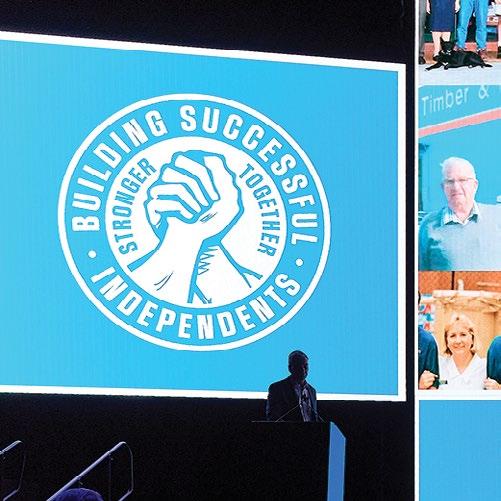


Further guidance will be provided, and businesses are encouraged to stay informed and reach out for support. Resources such as the Navigating New Rules factsheet are available to help with the transition. Visit the Department of Agriculture, Fisheries and Forestry for more details.
By staying ahead of these legislative changes, businesses can ensure compliance and contribute to the fight against illegal logging.
The 2025 Independent Hardware Group (IHG) National Expo brought Members together in Adelaide from 10–12 February for an exciting three days to connect, reflect on the past year, and recognise their incredible achievementscongratulations to all the nominees and winners for this year.

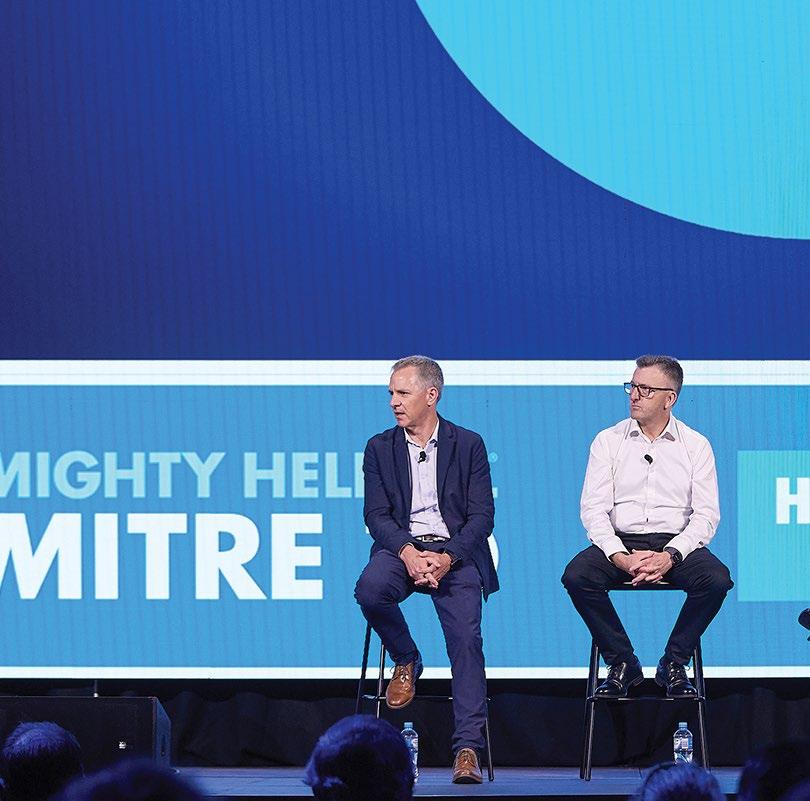



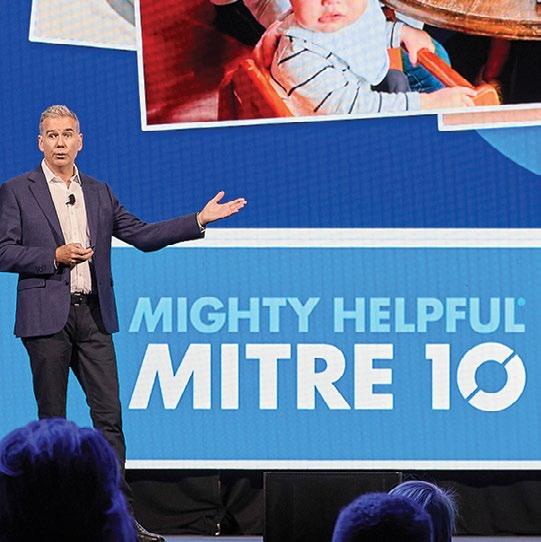
The past few weeks have been a whirlwind of events, providing valuable opportunities to connect with retailers, suppliers, and industry leaders.

Mikaela McKenzie and Martin Stirling attended the IGA QNN Business Meeting and Awards of Excellence Dinner in Brisbane, where they engaged with key stakeholders and celebrated outstanding achievements in the independent retail sector. Mikaela also attended the IGA NSW/ACT Autumn State Meeting and Awards of Excellence Dinner, gaining further insights into the evolving retail landscape. Meanwhile, Martin Stirling and David Inall participated in the AUR FoodWorks Conference in Adelaide, followed by the IGA SA/NT State Meeting, where David presented to attendees before the Awards of Excellence Dinner. These events provided an excellent platform to discuss industry trends and advocate for independent retailers.
Mikaela and Nicola Russell, alongside Kelly Cunningham from Your Leasing Co, exhibited at the Retail Property Marketplace in Sydney, showcasing opportunities for retailers in the leasing space. Additionally, Mikaela took the stage at the Association Forum Membership Summit, where she joined a panel discussion on Unlocking the Full Potential of Membership through Association Operations, sharing insights on strengthening member engagement. These events reinforce our ongoing commitment to supporting independent retailers and advocating for their success. We look forward to continuing these valuable conversations and collaborations across the industry.

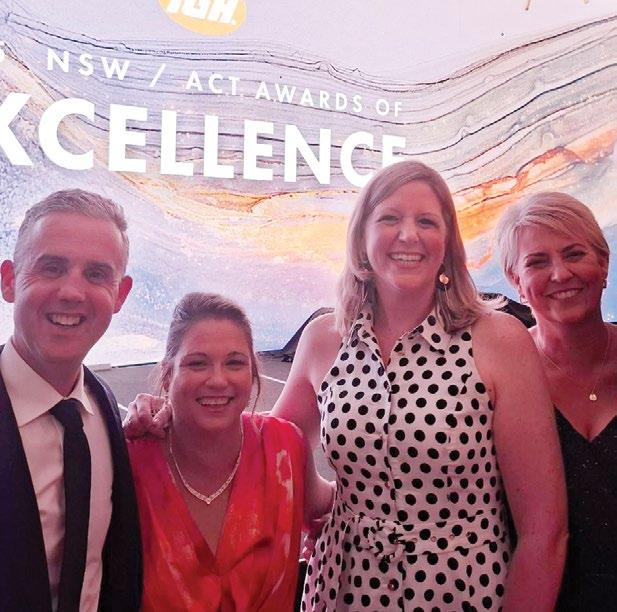





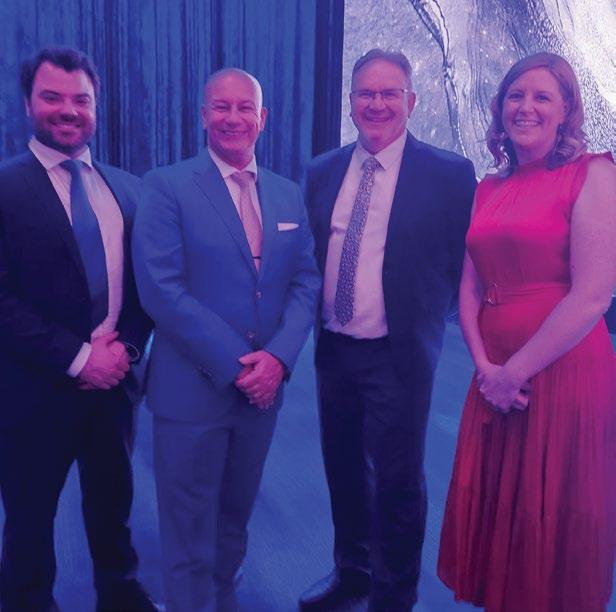



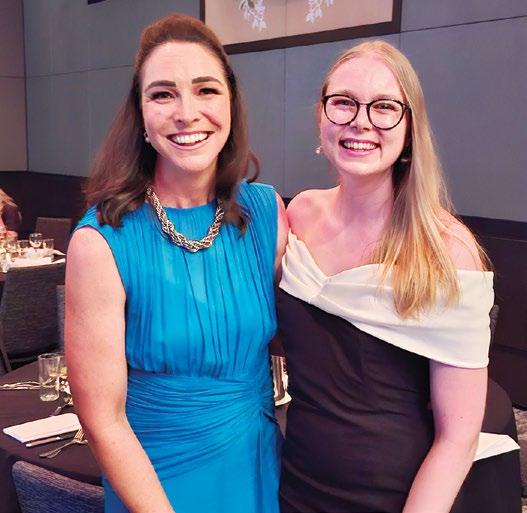
Left L-R: Nicola Russell MGAIBA, David Inall CEO MGAIBA, and MGAIBA Board Director, Jeff Harper
Above L-R: Giaan Rooney OAM former competitive swimmer and televison personality with Nicola Russell Membership Engagement Coordinator.

Circle top of page: Martin Stirling, Director, Legal Services MGAIBA, presents ‘Dismissal Dangers: Navigating Employment Law’.
Above middle, L-R: Martin Stirling, MGAIBA, Steve Minnik MP Minister for Small and Family Business, Terry Slaughter Vice President MGAIBA, and Mikaela McKenzie MGAIBA.
Below: Photos from the IGA QNN State Meeting February 2025.






2025 IGA SA / NT STATE MEETING and AWARDS of EXCELLENCE









